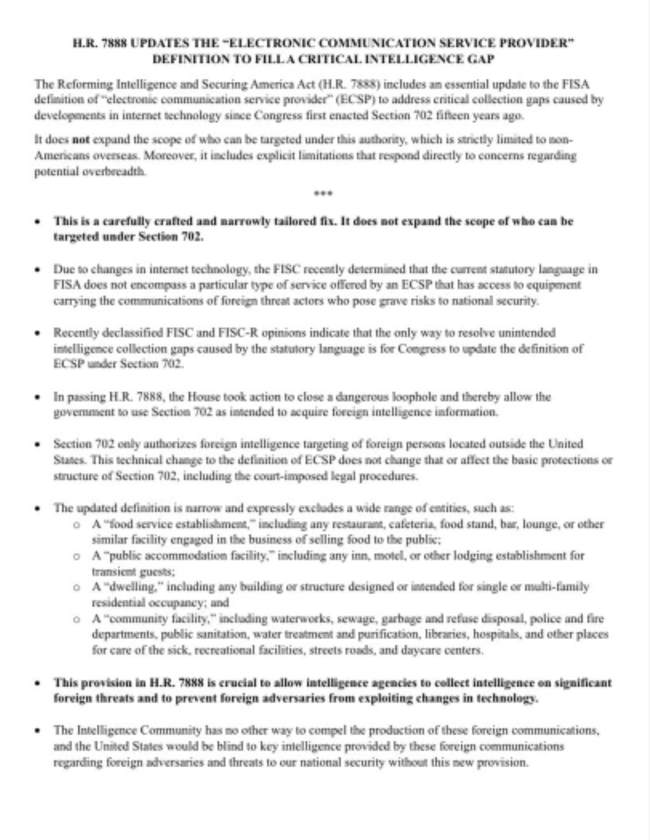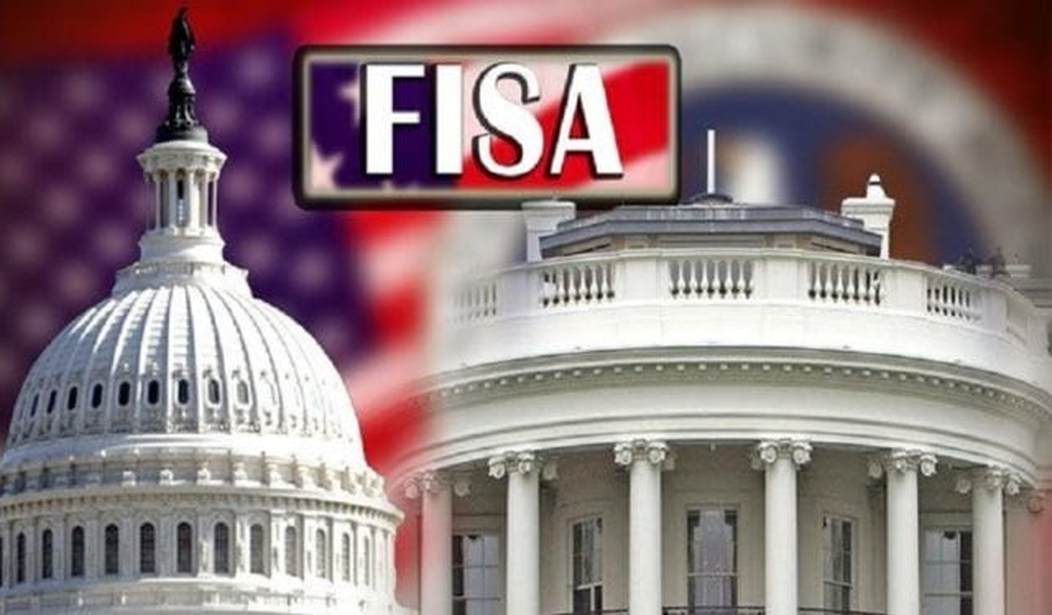The Biden Administration is racing against the clock to convince Senators that the bill to reauthorize the controversial Section 702 of the Foreign Intelligence Surveillance Act (FISA) does not widen the scope of potential surveillance targets before the authorization expires on Friday.
Although the surveillance authorized under FISA is prohibited from targeting Americans directly, it incidentally captures communications between Americans and foreign surveillance targets, causing the warrantless surveillance program to be extremely controversial.
While in the House, language was added to the legislation to cover new types of data service providers. Proponents of the provision argue that it's necessary to keep up with the advances in technology over the past 15 years since the Act's enactment. Dissenters on Capitol Hill warn that the new bill amounts to “a vast expansion of surveillance authorities,” as Democrat Senator Ron Wyden of Oregon said on Tuesday.
On Wednesday, the White House distributed a memo to Senate offices which was obtained by POLITICO.
In the memo, the Biden Administration contends that the updated language in the legislation “does not expand the scope” of who can be targeted which it says is "strictly limited to non-Americans overseas." The memo outlines “explicit limitations” on how the updated law can be used, including exclusions for hotels, restaurants, and people’s houses.
White House National Security Advisor Jake Sullivan described the language on Wednesday, calling it:
a technical fix designed to account for changing technological realities.
The Senate is scheduled to vote on the FISA legislation on Thursday, necessitating timely negotiations, amendments, and debate to prevent a technical lapse in the program's warrantless surveillance authority on Friday.
"Anti-spying" proponents may derail the legislation in an act of protest, potentially causing a brief shutdown of the authority. Section 702's critics on Capitol Hill argue there's no urgency to re-authorize, citing a recent court renewal of surveillance authorities until 2025, while the bill's supporters stress the need to pass the legislation, aiming to avoid potential intelligence failures.
A transcribed version of the memo is provided by RedState for our readers:
H.R. 7888 UPDATES THE "ELECTRONIC COMMUNICATION SERVICE PROVIDER" DEFINITION TO FILL A CRITICAL INTELLIGENCE GAP
The Reforming Intelligence and Securing America Act (H.R. 7888) includes an essential update to the FISA definition of "electronic communication service provider" (ECSP) to address critical collection gaps caused by developments in internet technology since Congress first enacted Section 702 fifteen years ago.
It does not expand the scope of who can be targeted under this authority, which is strictly limited to non- Americans overseas. Moreover, it includes explicit limitations that respond directly to concerns regarding potential overbreadth.
***
- This is a carefully crafted and narrowly tailored fix. It does not expand the scope of who can be targeted under Section 702.
- Due to changes in internet technology, the FISC recently determined that the current statutory language in FISA does not encompass a particular type of service offered by an ECSP that has access to equipment carrying the communications of foreign threat actors who pose grave risks to national security.
- Recently declassified FISC and FISC-R opinions indicate that the only way to resolve unintended intelligence collection gaps caused by the statutory language is for Congress to update the definition of ECSP under Section 702.
- In passing H.R. 7888, the House took action to close a dangerous loophole and thereby allow the government to use Section 702 as intended to acquire foreign intelligence information.
- Section 702 only authorizes foreign intelligence targeting of foreign persons located outside the United States. This technical change to the definition of ECSP does not change that or affect the basic protections or structure of Section 702, including the court-imposed legal procedures.
- The updated definition is narrow and expressly excludes a wide range of entities, such as:
- A "food service establishment," including any restaurant, cafeteria, food stand, bar, lounge, or other similar facility engaged in the business of selling food to the public;
- A "public accommodation facility," including any inn, motel, or other lodging establishment for transient guests;
- A "dwelling," including any building or structure designed or intended for single or multi-family residential occupancy; and
- A "community facility," including waterworks, sewage, garbage and refuse disposal, police and fire departments, public sanitation, water treatment and purification, libraries, hospitals, and other places for care of the sick, recreational facilities, streets roads, and daycare centers.
- This provision in H.R. 7888 is crucial to allow intelligence agencies to collect intelligence on significant foreign threats and to prevent foreign adversaries from exploiting changes in technology.
- The Intelligence Community has no other way to compel the production of these foreign communications, and the United States would be blind to key intelligence provided by these foreign communications regarding foreign adversaries and threats to our national security without this new provision.














Join the conversation as a VIP Member